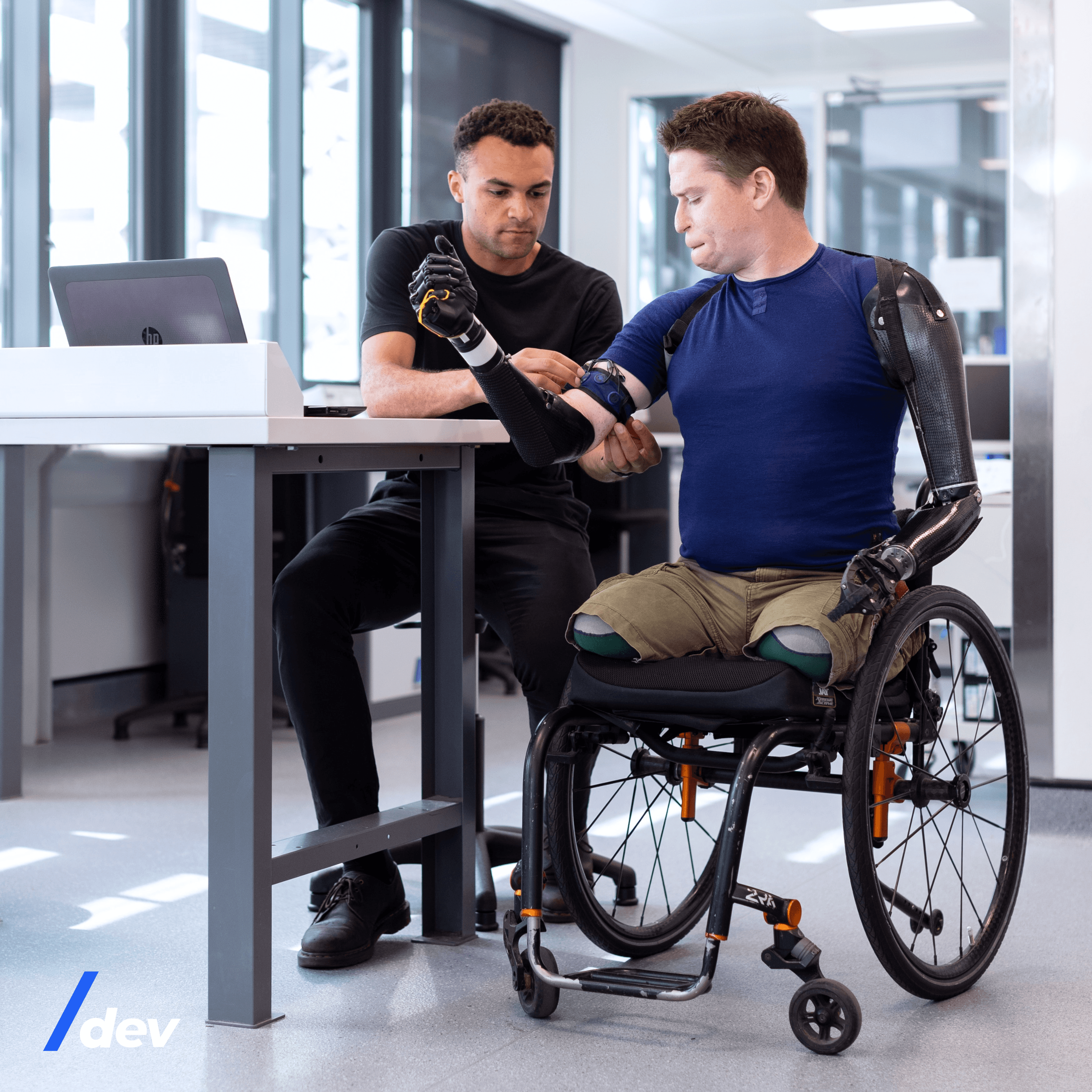Nav.SoftwareServices
Nav.forCompanies
Nav.forDevs
Products
Portfolio
Nav.hireDevs
Nav.hireDevs
Get Senior Engineers Straight To Your Inbox

Every month we send out our top new engineers in our network who are looking for work, be the first to get informed when top engineers become available

At Slashdev, we connect top-tier software engineers with innovative companies. Our network includes the most talented developers worldwide, carefully vetted to ensure exceptional quality and reliability.
Build With Us
The Impact of AI on Healthcare: Revolutionizing Patient Care and Medical Research/


Introduction
Artificial Intelligence (AI) has made remarkable strides in transforming various industries, and one area where its potential is particularly promising is healthcare. The integration of AI technologies in healthcare systems is revolutionizing patient care, enhancing diagnostics, enabling precision medicine, and accelerating medical research. This article explores the profound impact of AI in healthcare, highlighting its applications, benefits, and future prospects.
AI in Diagnostics and Disease Detection

Medical Imaging and Radiology
AI algorithms can analyze medical images, such as X-rays, CT scans, and MRIs, with remarkable precision. By leveraging deep learning techniques, AI systems can detect abnormalities, identify early-stage diseases, and assist radiologists in making accurate diagnoses. AI-powered image analysis helps reduce diagnostic errors, improve patient outcomes, and streamline the interpretation of complex medical images.
Early Disease Detection
AI-based predictive models can analyze patient data, including medical records, genetic information, and lifestyle factors, to identify individuals at risk of developing certain diseases. By leveraging machine learning algorithms, AI can identify subtle patterns and biomarkers that might not be apparent to human clinicians, enabling early detection and intervention for conditions such as cancer, cardiovascular diseases, and diabetes.
Personalized Medicine and Treatment
Precision Medicine
AI enables personalized treatment plans by analyzing vast amounts of patient data and identifying optimal therapies based on individual characteristics. By integrating genomics, patient history, and medical literature, AI algorithms can assist in tailoring treatment options that are most effective for specific patient populations, minimizing adverse effects, and improving treatment outcomes.
Drug Discovery and Development

AI accelerates the drug discovery process by analyzing vast databases of biological and chemical data. AI algorithms can predict the efficacy and safety of potential drug candidates, reducing the time and cost associated with traditional drug development approaches. Furthermore, AI enables the repurposing of existing drugs for new indications, unlocking opportunities for more efficient therapeutic interventions.
Enhancing Healthcare Operations
Administrative Efficiency
AI-powered systems can automate administrative tasks, such as appointment scheduling, billing, and coding, freeing up healthcare professionals’ time to focus on patient care. Natural language processing and virtual assistants enable voice-enabled interactions, facilitating seamless communication and improving operational efficiency.
Predictive Analytics and Resource Management
AI algorithms can analyze large healthcare datasets to predict patient flow, anticipate resource demands, and optimize hospital operations. By leveraging historical data, AI can assist in forecasting patient admissions, predicting disease outbreaks, and optimizing resource allocation, leading to improved patient care and cost savings.
Ethical Considerations and Challenges
Privacy and Data Security
The integration of AI in healthcare necessitates careful management of patient data to ensure privacy and data security. Safeguarding sensitive medical information and complying with regulations is crucial to maintain patient trust and confidentiality.
Explainability and Transparency
AI algorithms often operate as “black boxes,” making it challenging to understand the reasoning behind their decisions. Ensuring transparency and explainability in AI models is essential, particularly in critical healthcare scenarios, to gain clinician and patient acceptance.
Conclusion
The application of AI in healthcare is transforming the way patient care is delivered, enabling earlier disease detection, personalized treatments, and more efficient medical research. While significant advancements have been made, addressing ethical considerations, ensuring data privacy, and fostering collaboration between AI and healthcare professionals is vital for the responsible and widespread adoption of AI in healthcare. As AI continues to evolve, its potential to revolutionize patient care and improve health outcomes is immense. To stay updated on the latest developments in AI and healthcare, visit slashdev.io.

